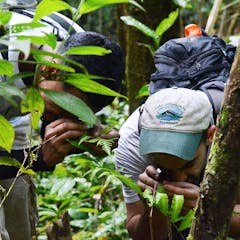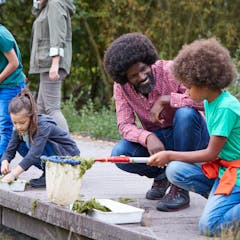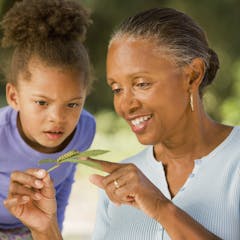
Articles on Outdoor education
Displaying all articles

Students are provided the opportunity to use America’s national parks as case studies for environmental issues and tough conversations in this course.

Botanizing is the practice of observing and appreciating plant life. Two plant scientists explain how it benefits people and the planet.

‘Etuaptmumk’ or Two-Eyed Seeing is the gift of multiple perspectives in the Mi’kmaw language. A key practice of this in an early childhood outdoor program is walking together and sharing stories.

Policymakers can boost outdoor education by integrating it into strategies to enhance both student and teacher well-being and equity.

Learning outdoors has benefits for children’s health, mood and social skills.

Problems include no fields, no courts for games, no playgrounds, no bike racks and no traffic-calming surrounding the school. Bringing in minimum standards is important.

Some school districts now accept year-long consent forms in which guardians can consent for children to participate in neighbourhood walks at any time in the school year.

Planning outdoor early learning and child care has implications for training and recruiting educators as well as for planning, developing and funding physical spaces.

Université de Sherbrooke introduced 10 new outdoor classrooms during COVID-19 and created a guide about outdoor teaching. It will fine-tune outdoor teaching in response to student feedback.

Insects are plentiful and inexpensive. Even when children aren’t attending school in person, they can learn from the encounters they have with insects outside.

Moving classes outside deserves serious consideration not only for better ventilation, but also to introduce more education devoted to learning on, from and with the land.

Global experts in child development say recess will be critical for children’s well-being when schools reopen, so education authorities should see planning recess as a high priority.

Scotland is undertaking a child-care initiative to double the number of fully funded child-care hours available to parents, and outdoor play is part of it.

When parents walk in the forest with their children and us and see how children are drawn to spiral snails, together we see how connections with the land are critical for the Earth’s future.
